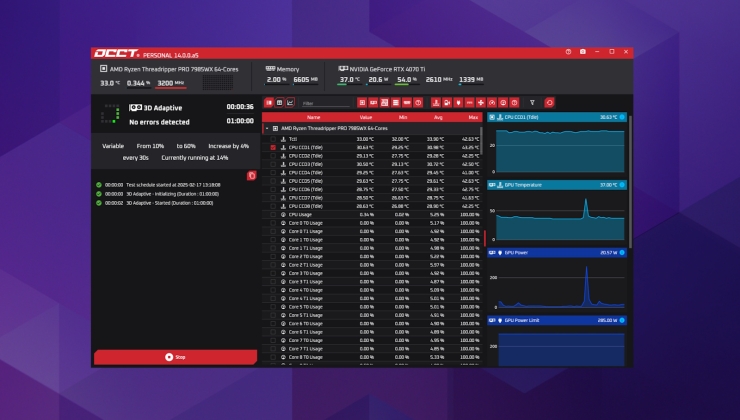Valve are in the legal spotlight again following the EU Commission Fine with a few more Steam troubles, as a new lawsuit has emerged with a claim about an "abuse" of their market power.
First picked up by the Hollywood Reporter, which has the full document showing the lawsuit was filed on January 28, was filed by 5 people together and doesn't appear to have any major companies backing it. The suit mentions how Valve require developers to sign an agreement that contains a "Most Favored Nations" provision to have developers keep the price of their games the same on Steam as other platforms. To be clear, they're talking about the Steam Distribution Agreement which isn't public and not what we can all see in the Steamworks documentation which talks about keys.
This means (if the claim is actually true) that developers cannot have their game on itch, GOG, Humble or anywhere else at a lower price, and so the lawsuit claims that other platforms are unable to compete on pricing "thereby insulating the Steam platform from competition" and that it "acts as an artificial barrier to entry by potential rival platforms and as higher prices lead to less sales of PC Games".
As part of the lawsuit it also names CD Projekt, Ubisoft, Devolver Digital and others.
It argues that if developers could legitimately set their own prices across different stores, they could lower their prices on stores that take a lower cut and "generate the same or even greater revenue per game as a result of the lower commissions, while lowering prices to consumers". They even directly bring up posts on Twitter from the Epic Games CEO, Tim Sweeney, like this one from 2019:
Steam has veto power over prices, so if a multi-store developer wishes to sell their game for a lower price on the Epic Games store than Steam, then: 1) Valve can simply say “no” 2) Pricing disparity would likely anger Steam users, leading to review bombing, etc
What are your thoughts on this? Should Valve be forced to allow developers to set their own prices, and not require their price to be the same as other stores?
You can't break an NDA you didn't sign.No but it gives Valve an easy reason to ignore me. I'm not about to burn bridges, don't try to get me to.
Anyway, since there's some rampant fanboyism going on, I shall not be replying further personally on this one.
You can't break an NDA you didn't sign.No but it gives Valve an easy reason to ignore me. I'm not about to burn bridges, don't try to get me to.
Anyway, since there's some rampant fanboyism going on, I shall not be replying further personally on this one.
I'm not trying to get to you. It's just about being objective here. That's not fanboyism.
Sorry but you're clearly not objective about any of this.
Pointing out simple objective mistakes/false claims in the lawsuit = fanboyism?
The lawsuit is talking about the main Steam distribution agreement though, not the Steamworks Steam Keys agreement. They're two different things. As far as I can tell, the Distribution Agreement is confidential and so we cannot see it. This is where the MFN clause is contained.
Allegedly contained.
The ambulance chasers are the only ones that have said there's an MFN clause; there's no independent evidence to show that there really is one, their other claims are - charitably - questionable, and things like EA's games being cheaper on Origin than Steam would suggest that there isn't one.
The contract will be shown at trial, likely under seal, should it go that far. This case seems much more like a means of generating negative publicity for Valve, with a side of the off-chance that paying the litigants to go away is cheaper than going to court so they'll get a payday. MFN clauses aren't universally upheld, even if there is one, in any case
Last edited by Liam Dawe on 1 Feb 2021 at 6:27 pm UTC
Not curious question.
chears all ;-)
As I implied in my last comment, Epic doesn't have regional pricing tools as good as Steam has. Being objective would require that you take in account this limitations when you try to imply that a temporal exclusivity is not a big deal.Temporary exclusivity is only a big deal if someone absolutely has to play a game right now instead of one year later.
Now, objectively, how many people absolutely have to play a game right now and couldn't possibly wait? Especially considering so many games nowadays take about a year to "mature" post release to actually be good...
No, Epic is aiming at those without patience and poor impulse control (or who genuinely don't care what storefront they use).
Either way, it's the consumer's decision and the consumer is old enough to make decisions for themselves.
The lure is Epic's, but nobody is forcing anyone to bite.
You are correct about the regional pricing, afaik.
But I don't see what that would have to do with devs being allowed to sell lower on Epic.
If Steam already has better regional pricing, and if you can benefit from that by getting the lowest price already, what does it matter if Epic's high prices are lower than Steam's high prices?
Not to mention that installing Steam client is way simpler in any Linux distro that doing the same with Epic launcher.Sorry, I should have specified that I was talking about the majority of users, not the majority of Linux users.
If you are on Windows, both are the same experience (install-wise! not usability-wise as everyone knows).
And most are on Windows, so...
The harsh truth is that Linux still doesn't matter much on the gaming market (and that is still a better state than it was years ago).
"Think of the poor Linux users" just isn't much of an argument when you talk business.
The lawsuit makes many claims which are based on social media rants, such as clause 67 which states "Game developers overwhelmingly believe that the Steam platform does not justify a 30% commission fee on their earnings." Meanwhile they seemingly have no problem with Microsoft (Xbox), Sony (PlayStation), and Nintendo (Switch) all charging that same 30% fee. Rhetorically speaking, why are they singling out Valve as the market manipulator when all 3 of those other platforms have greater market reach and influence?XBox is a platform owned by Microsoft. They can (well, almost) do whatever the hell they want on their own platform. Same for PS and Switch.
MS, Sony and Nintendo have monopolies on their own platforms. As someone else said, monopolies are not on their own illegal. Problematic, maybe, but not illegal.
PC is different. Very different. Valve doesn't own the platform. It is a competitor on the platform. And when you do have competition, there are actually some rules.
Valve is not being unfairly singled out here, they are literally the only ones in their situation.
The 30% themselves are more historical than anything else. They became the standard because they are not completely outlandish (iirc, it used to be 50% many more years ago) while also allowing the store owners a significant profit. It is still undeniably more than it has to be for store owners to be profitable.
Last edited by TheSHEEEP on 1 Feb 2021 at 6:56 pm UTC
Guys, I'm reading your comments and still not understand games prises on Steam goes up or down, if Valve will agree that EU Commission Fine?
Not curious question.
chears all ;-)
Commission fine is a separate topic discussed in another article. But if EU wins, prices will remain the same in central Europe (Germany/France) and go up in the periphery (East Europe) to match these.
This article is about a sue being started by unknown people against valve. They claim they abuse their "monopolistic position" to influence prices among the whole market. If they win or not, nothing will change really.
Digital prices are always set to maximize total revenue (units sold * unit price) because they have near 0 fixed costs (it costs nothing to make an additional copy after the first one, and you don't have to rent warehouses to store unsold copies). So, to simplify things, if a publisher thinks he can increase the price of a VG of 20% in Europe and europeans will still buy it, he will increase prices. If he instead thinks that reducing the price 10% will allow him to sell 50% more copies, he will reduce price. In practice publishers kind of do both to maximize revenues: they first sell the VG at full price, then when all people willing to pay full price are done they reduce 10% and they sell all copies they can at that price. Then reduce again and again until they have sold max amount of copies at the max possible price.
Many facts are proof of this: when Steam "invented" digital distribution, prices remained the same even though suddenly distribution fee went from 50% to 30%. Because people thought 60$/€ was a reasonable price, digital or not. When Epic started their 12/88 crusade, prices remained the same. Because people still think 60$/€ is reasonable price. When you buy a game in Russia you pay less than same game in USA (geoblocking, purchasing power). Because people in Russia don't think 60$ is a reasonable price for them. Prices aren't determined by production or distribution costs. Only by how much we are willing to spend. So whatever happens to Steam, rest assured that prices won't change, for sure not in the way you like.
This specific case see a bunch of trolls trying to get some settlement money from Valve to avoid the legal costs or complications of a trial. It's part of a number of legal quarrels we're seeing recently that has been started or fomented by Epic. The issue at hand, once factoring out rethoric, it's purely about who's getting a bigger piece of the cake (digital platforms vs publishers). Not about consumer interests (value/price ratio) and only rarely on developer interests (publishers are almost always contractually stronger than developers, so any money they can absorb from distributors they will keep it and not pass it to devs).
As a gamer one should only take sides when value/price ratio is affected in a pejorative way. Because price is independent (or better, depends only on national avg income that is independent from gaming industry), for us it's only a matter of value. Thus all the hostility of gamers towards EGS, Ubistore and all the other half backed gaming platforms. We don't want to pay the same but start to get less.
Last edited by Mal on 2 Feb 2021 at 4:56 pm UTC
So yeah, this isn’t going anywhere. Calm down.
https://www.youtube.com/watch?v=mOEG5qmMQas
Steam maintaining their market dominance is in MY best interest.
They Win? I Win. We All Win.
If devs want to sell for less on other platforms, Steam doesn't have to admit them access to ride Steam Train Party -- Choo Choo.
Steam's relationship with devs/publishers is PARTNER, and if they are doing things that jeopardize that PARTNERSHIP out of self-interest -- they are ENEMIES if not exploiting Steam being an ENABLER.
Lets level too -- this isn't about the little devs, but the big devs signing ANTI-CONSUMER agreements behind closed doors.
I'm 100% with Steam, FUCK DEVS who do this. GET THE BOOT AND GET THE FUCK OFF THE STEAM TRAIN CHOO CHOO BITCHES.
Edit: TL;DR: Steam is being ANTI-COMPETITIVE while other platforms are being ANTI-CONSUMER. As a consumer I'm fine with this.
Last edited by ElectricPrism on 1 Feb 2021 at 11:06 pm UTC
Given the high hurdles in US antitrust law, even if the allegation is true that might well not be enough for Valve to actually lose the lawsuit, as noted by EagleDelta etc. But it's still a practice I'd find somewhat annoying--sure, you can understand why they'd want to do it, but then it's easy to understand why any company would do any anti-competitive practice . . . no company wants to be successfully competed against.
Of course if it ain't true then the filers are just assholes. And whether it's true or not, the filers could have questionable motivations and backing.
This is one of reasons why I support Uncle Jack's-backed shops rather than the "T-keiretsu wannabes" shops. The former is lesser evil than latter, the former just want to make more money for him and his cronies rather than latter want to conquering every single thing on our earth as "the big papa" wishes.
There's reason why Uncle Jack is being "disciplined" by "the big papa" for a while few months ago. For me, from far away this lawsuit smells "T-keiretsu wannabes".
And personally, very uneasy with EU in last 2-3 years. Feels like most of their laws and regulations is trying to protect the-chosen-one EU citizens/entities by giving middle finger to both not-the-chosen-one EU citizens and non-EU citizens alike.
That's all.
Temporary exclusivity is only a big deal if someone absolutely has to play a game right now instead of one year later.
Now, objectively, how many people absolutely have to play a game right now and couldn't possibly wait? Especially considering so many games nowadays take about a year to "mature" post release to actually be good...
No, Epic is aiming at those without patience and poor impulse control (or who genuinely don't care what storefront they use).
Either way, it's the consumer's decision and the consumer is old enough to make decisions for themselves.
The lure is Epic's, but nobody is forcing anyone to bite.
You are correct about the regional pricing, afaik.
But I don't see what that would have to do with devs being allowed to sell lower on Epic.
If Steam already has better regional pricing, and if you can benefit from that by getting the lowest price already, what does it matter if Epic's high prices are lower than Steam's high prices?
From the beginning my argument was that you're minimizing Epic practices as you understood that this are "business" practices while, at the same time, you gave a bigger weight to this Steam practice (which we are not 100% sure as I shared price differences between stores). From your point of view, Steam's practices affects consumers while Epic doesn't so one is less tolerable than the other... well, if I'm correct regarding regional pricing then we can agree that both practices ends up affecting end users. If I wanted, I could use the same logic and say that Steam practice is not a big deal as not being a "Most Favored Nations" citizen their agreement is completely innocuous for me, but I won't do that.
Oh, and I completely disagree on labeling people as you do. Buying a game on release date doesn't mean that you're an impulsive person, it just mean that you really enjoy a game. And that's what Epic exploits with their exclusivity.
Sorry, I should have specified that I was talking about the majority of users, not the majority of Linux users.
If you are on Windows, both are the same experience (install-wise! not usability-wise as everyone knows).
And most are on Windows, so...
The harsh truth is that Linux still doesn't matter much on the gaming market (and that is still a better state than it was years ago).
"Think of the poor Linux users" just isn't much of an argument when you talk business.
Well, I think that in this forum you'll find that most users have Linux as their only installed desktop OS. And as my arguments were consumer focused, you will also agree that the an Epic exclusivity is yet another disadvantage for us.
Huh. Well, I guess if the allegation is true, that Valve's secret contracts involve making developers not sell their games cheaper anywhere else as a condition of being able to sell on Steam, that's kind of anti-competitive in that it stops other stores from trying to gain market share by underselling Steam. And if you foreclose on the whole concept of competition on price, that's likely to be bad for consumers.
Given the high hurdles in US antitrust law, even if the allegation is true that might well not be enough for Valve to actually lose the lawsuit, as noted by EagleDelta etc. But it's still a practice I'd find somewhat annoying--sure, you can understand why they'd want to do it, but then it's easy to understand why any company would do any anti-competitive practice . . . no company wants to be successfully competed against.
Of course if it ain't true then the filers are just assholes. And whether it's true or not, the filers could have questionable motivations and backing.
If you watch the video I linked, he talks about how MFNs are actually fairly standard across several industries. Additionally, without seeing the contracts, which I might add may require permission from the game developers to show, we only have the SteamWorks docs to go off. The video author noted that the contents there are not written in a way that constitutes an MFN. It's pretty much a "We don't know" right now.
Oh, and I completely disagree on labeling people as you do. Buying a game on release date doesn't mean that you're an impulsive person, it just mean that you really enjoy a game. And that's what Epic exploits with their exclusivity.So enjoy the game later, then! If not buying on Epic is so important to you. When I see that a game is on EGS that I know I'd really like to play, I simply wait. Is having to make that decision a disadvantage? Sure, but a very minor one. It's not like that is some herculean feat of willpower.
If making excuses for people not even able to deal with some irrational FOMO being suckered into buying from a store they don't actually want to buy from is what rocks your boat, have fun I guess.
If I get suckered into doing something I think I shouldn't do, it's my fault and nobody else's. Might even grant the other party some kudos as they got the better of me. What I won't do is blame them for something I did, as that would be pathetic.
Took me until I read the actual filing to realise that the 5 plaintiffs where all gamers, I for some reason thought that they where game developers.Are you sure about this? That does make the whole thing indeed sound incredibly weird.
Last edited by TheSHEEEP on 2 Feb 2021 at 3:54 pm UTC
It's 3 people that have bought games on Steam for themselves, and 2 people that have bought games on Steam for their children (which they think means they aren't themselves subject to the Steam Subscriber Agreement, despite them necessarily checking the box to say that they are). They aren't the sharpest pencils in the box.Took me until I read the actual filing to realise that the 5 plaintiffs where all gamers, I for some reason thought that they where game developers.Are you sure about this? That does make the whole thing indeed sound incredibly weird.













 How to set, change and reset your SteamOS / Steam Deck desktop sudo password
How to set, change and reset your SteamOS / Steam Deck desktop sudo password How to set up Decky Loader on Steam Deck / SteamOS for easy plugins
How to set up Decky Loader on Steam Deck / SteamOS for easy plugins
See more from me